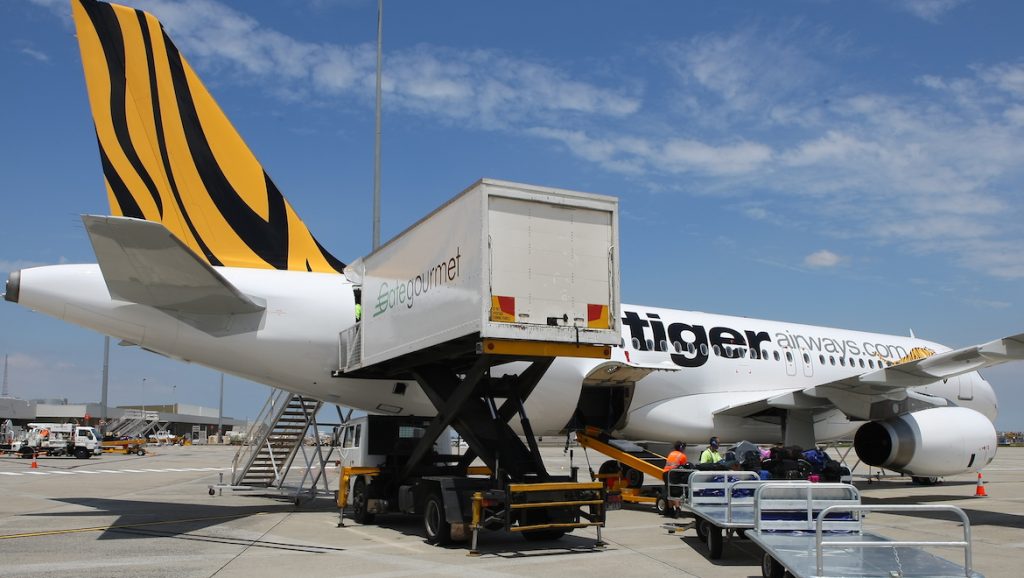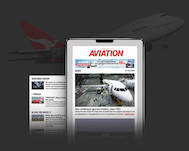
In this cross-posting from Australian Aviation’s sister title Lawyers Weekly, Jerome Doraisamy speaks to HFW partner Mert Hifzi and senior associate James Jordan on how the business of aviation will change after the coronavirus pandemic has subsided.
COVID-19 has had a significant impact upon the aviation industry, bringing into sharp focus the critical role lawyers will have in ensuring clients not only survive, but can flourish.
That the global coronavirus has had a “significant negative impact” upon the aviation industry is difficult to escape.
This is the view of HFW partner Mert Hifzi and senior associate James Jordan, who – as “industry partners, rather than just service providers” – note that lawyers such as themselves have not been immune to the downturn in aviation activity.
“We are standing together with our clients and having to adapt to a new operational environment. This brings into sharper focus the need for the lawyers to find creative ways to assist clients and ensure that the aviation industry not only survives this episode, but is able to flourish in [the] future,” the pair said.
“While work flows for private practice lawyers have understandably reduced, the broader industry is adapting to the ‘new normal’ and signs of recovery are starting to appear in some markets, especially in north Asia. For in-house counsel, we understand from discussions with our clients that this has been among the busiest periods in their careers, with COVID-19 creating a multitude of new issues ranging from employment to health and safety as well as financing, debt management and asset preservation.”
The road ahead
It is likely, Hifzi and Jordan noted, that restructuring and debt management issues will be “at the forefront of most lawyers’ minds” as the aviation industry initiates its recovery.
“For those airlines that have received financial support and/or bailouts, the relationships with [the] government will need to be carefully managed from a corporate governance perspective, as the best interests of government may not always align with those of the board of directors and company management. Lawyers will need to assist in facilitating strong corporate governance practices,” the pair outlined.
“Commercial contracts will change, with partners seeking a higher degree of protection due to the perception that companies within the aviation sector are more likely to default on payment obligations. This will require an attitude change from aviation lawyers who will need to alter the way agreements are structured in order to facilitate business relationships and investment in the industry.”
It is likely, Hifzi and Jordan continued, that governments will also put in place regulations that facilitate “social distancing” and which enable the industry to restart while the transmission risks from the pandemic still exist.
“It is also likely that some countries will keep in place strict border controls and, for example, maintain quarantine measures for arrivals from certain countries. Such regulations will likely be deeply unpopular, both within the industry and the travelling public,” they said.
“These regulations are unlikely to be applied consistently across jurisdictions, which will create a patchwork regime which may be complicated for clients to navigate on their own.”
Before COVID-19, Hifzi and Jordan mused, the airline industry was “already moving away from a business model where aircraft were owned by operators”.
“The pandemic may speed up this process and will create an interesting dynamic where most future airlines own almost no physical assets. This could complicate the future financing of the industry where entities are not able to offer significant collateral to financial institutions in order to secure capital and loans. For lawyers that specialise in leasing and financing of aircraft, this will create unique challenges but also potential opportunities,” they said.

The role of lawyers
In the face of such issues and challenges, all lawyers in the aviation space will be “under pressure to justify their existence and we see adaptability as being essential to weather the storm”, Hifzi and Jordan posited.
“Private practice lawyers will need to broaden their ‘skill set’ and move outside their comfort zone in order to remain busy. It will be a challenging time for both private practice and in-house lawyers alike, but this is not the first time the aviation industry has faced significant challenges (albeit not on this scale) and recovered,” they advised.
“Those lawyers and teams that support their clients by providing cost-effective and flexible solutions while demonstrating that they understand the deep and complex challenges faced by the sector will come out the other side with valuable experience and will be even better placed to provide advice when the good times hopefully return.”
The pair added that they have seen “significant demand” in the air cargo market with many non-aviation entities looking to charter their own aircraft as a result of the reduction in global cargo capacity due to the grounding of the global passenger fleet.
That is, they explained, “cargo can no longer be carried in the belly of passenger aircraft”.
“Given the financial strain on the industry, many operators of aircraft are looking to restructure their arrangements with lessors and finance parties which has resulted in a steady workflow for those lawyers that specialise in the financing of aircraft,” they said.
Pivoting to a post-pandemic world
Looking ahead, Hifzi and Jordan acknowledged that “the industry that we knew” in the months preceding the current crisis may never return in the same form.
“It faced a number of challenges, ranging from decreasing seat profitability to sustainability, and the escalating threat of climate change,” they mused.
“Aviation will recover, and while changes may be necessitated in the short-term to ensure safety onboard [the] aircraft, it should be kept in mind that aviation did not cause COVID-19 and the risk of transmission onboard [the] aircraft would appear to be relatively low provided passengers follow the same hygiene standards they would apply in their daily lives (i.e. hand washing, no touching of the face etc).
“Ultimately, unless a safe vaccination is developed, the COVD-19 disease will probably not disappear completely from our lives at any point in the foreseeable future. Therefore, the aviation industry, as well as the wider world, will need to find ways to adapt to the new ‘normal’, until a permanent solution can hopefully be found.
“There is, however, now an opportunity to develop a new model for the future of aviation which puts the longevity and sustainability of the industry at its core.”
To share how COVID-19 has impacted you and your business, please complete this anonymous, two-minute survey here. For more information, please contact [email protected]
















